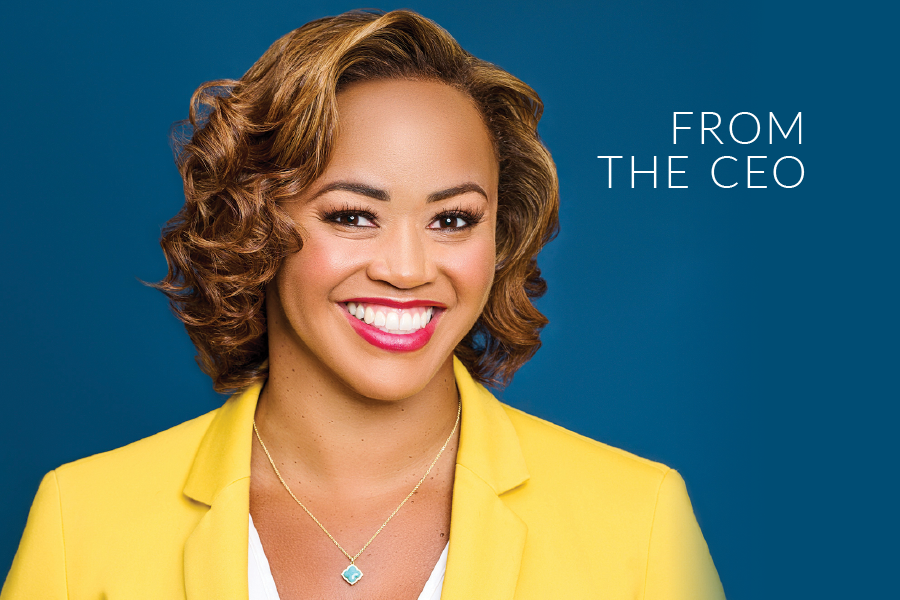When the world shut down due to COVID-19 in 2020, my world changed in more ways than just one. The day before the shutdown, in between meetings to navigate an office closure, remote work options and what “essential employee” would mean for our 17,000+ members, I also had to hop on a personal call with our son’s doctor. On that call, my husband and I were informed of our son’s autism diagnosis. While I had been aware of autism and had some knowledge, before Broyce’s official diagnosis, I hadn’t fully grasped what it meant to support and truly see individuals with autism or other forms of neurodivergence. The journey from that initial phone call to today has been a rollercoaster of emotions, reshaping my perspective at every stage and opening my eyes to ever evolving ways to be inclusive.
As a passionate champion of diversity, equity and inclusion, it is important to me that we explore all aspects of inclusion. An area that often gets overlooked in these discussions is neurodivergence. That’s why we provided a thought-provoking and eye-opening session at our annual 360° Summit: Leading With Diversity, Equity & Inclusion by Dr. Abigail Cruz, PhD, a licensed psychologist and DEI Initiatives Coordinator for Counseling and Psychological Services (CaPS) at Carnegie Mellon University.
Being a parent of a child with autism teaches me something new almost every day, both personally and professionally. If you have taken training through our association, you’ll know that I’m big on executive presence — in how you dress, how you interact with others and how you carry yourself. For someone like Broyce, making eye contact — which I would consider an important part of executive presence — can be difficult and uncomfortable. It wasn’t until this year that I realized my opinion on the importance of eye contact isn’t going to always work for everyone. This awareness of neurodiverse experiences and perspectives has encouraged me to understand that executive presence might be different from one person to another, as well as having a broader understanding of inclusion for all.
As Dr. Cruz led us through the impacts of neurodivergence, one slide really stood out — saying, “When you’ve met one person with autism, you’ve met one person with autism.” It is so important to remember that every person is unique, and we should ask about their needs, communication preferences and seek to understand. There is no one size fits all approach. But there is always room for valuable insights and perspectives to help along the way.
I truly believe that creating inclusive communities starts with awareness and acceptance. By embracing the experiences of people like Broyce and other neurodivergent thinkers, we can build spaces where everyone feels valued and welcomed. This journey isn’t just about me — it’s about making our world a more equitable and compassionate place for all. Our ability to understand people who are different from us is vital in creating homeownership opportunities for all and continuing to ensure Chicago is a vibrant place to live, work and play.







